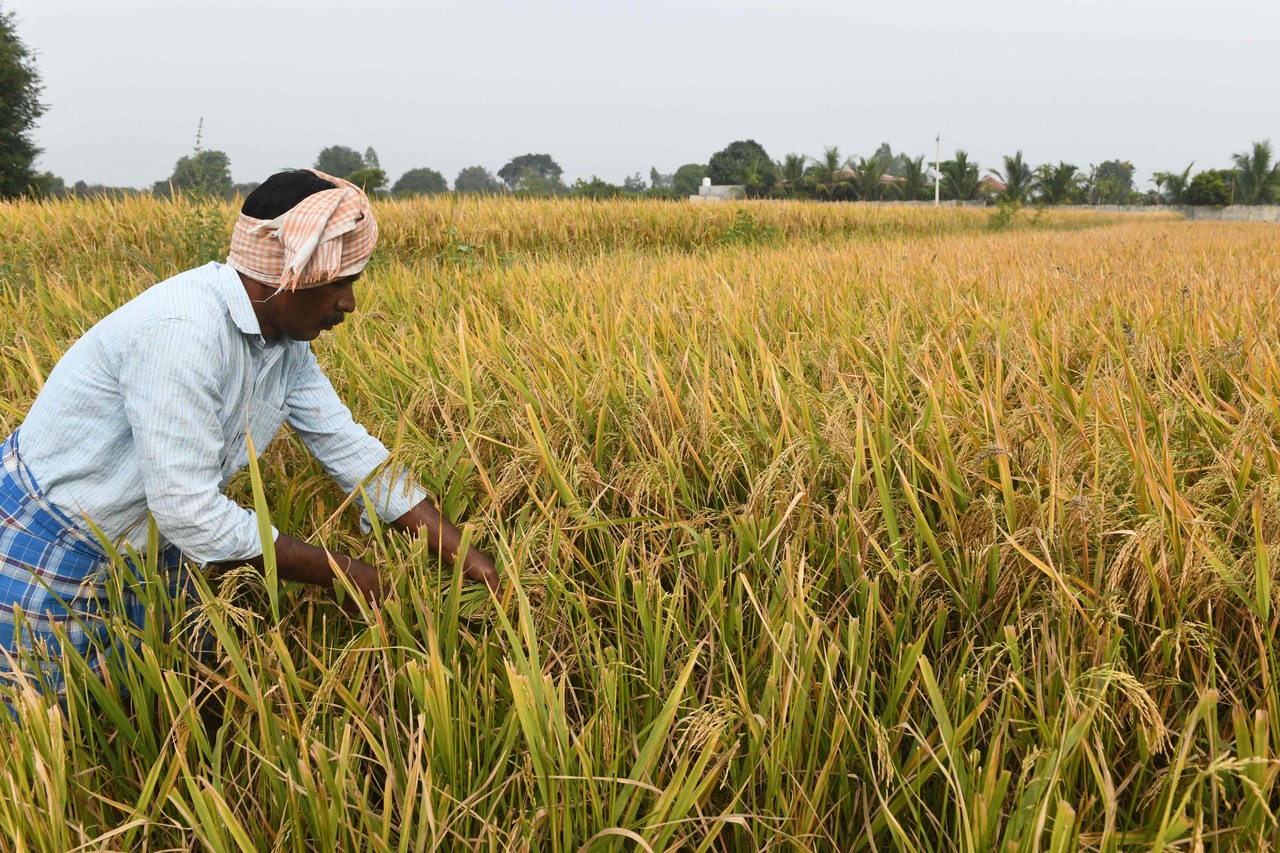Modi makes U-turn on controversial farm laws ahead of key state elections
Sign up now: Get insights on Asia's fast-moving developments

Farmers have protested for more than a year against the three controversial farm laws.
PHOTO: AFP
NEW DELHI - In a stunning rare reversal of policy, India's Prime Minister Narendra Modi announced on Friday (Nov 19) that he had decided to repeal three controversial farm laws, a move seen as an attempt to appease farmers ahead of elections in two key states.
Farmers have been up in arms over the laws, camping at the borders of the capital, since November last year.
"Whatever I did, I did for the farmers and whatever I am doing, I am doing for the country," Mr Modi said in a nationwide address.
He timed the announcement with Gurupurab, a Sikh festival to celebrate the birth of Sikhism's founder, Guru Nanak. Many of the protesting farmers are from the Sikh community in Punjab, one of two states - the other being Haryana - often described as the country's breadbasket.
Mr Modi apologised to the nation, acknowledging "some deficiency" on the government's part in explaining the laws to farmers. He urged those protesting to go home.
The rollback of the laws, he said, would be tabled in the upcoming session of Parliament that starts next week.
India's agriculture is in dire need of reform to boost productivity. The sector faces a myriad of problems ranging from its overwhelming dependence on rains for irrigation to the growing cost of fertiliser and seeds, among other things.
Agriculture makes up 15 per cent of India's gross domestic product and most farmers are small landholders who are weighed down by debt.
The government had argued that the three farm laws - the Farmers' Produce Trade and Commerce (Promotion and Facilitation) Act, the Farmers (Empowerment and Protection) Agreement of Price Assurance and Farm Services Act, and the Essential Commodities (Amendment) Act - would bring in much-needed private investment into agriculture.
The laws would have also led to the dismantling of government-regulated wholesale markets and allowed farmers to sell directly to private firms.
But farmers believed this would have put them at the mercy of large corporations.
Mr Modi's ruling Bharatiya Janata Party (BJP) ran into further trouble last month after a car belonging to junior federal home minister Ajay Mishra plowed into protesting farmers, leading to several deaths.
Analysts said it remained to be seen how Mr Modi's u-turn would play out and whether opposition parties, which are on a weaker footing, would be able to capitalise on it.
The BJP hopes to retain power in Uttar Pradesh and capture Punjab, currently ruled by the opposition Congress party, in elections due within four months.
"Ground reports on the public mood did indicate that at least in Uttar Pradesh, the BJP was losing ground. It is in the lead and this is a strategic move to prevent any tilting of the balance. This is making a virtue of necessity," said Dr Sandeep Shastri, vice-chancellor, Jagran Lakecity University.
"They would not like to see this as a withdrawal but as a course correction. But the question is, are they able to convince everyone," he added, referring to the BJP.
Around 100 of the 403 legislative assembly seats in Uttar Pradesh were directly impacted by farmer protests.
In the 2017 election, the BJP won 312 seats in the state and the Congress took a paltry seven.
Still, Mr Modi is not known for walking back on any policy decision and has built his reputation as a strong leader with the capacity to take major decisions on reform on the back of the massive majority he enjoys in the federal Parliament.
The U-turn was extremely unusual, according to analysts.
"This is quite un-Modi-like," said Delhi-based political analyst Nilanjan Mukhopadhyay, who noted that western Uttar Pradesh, where many farmers were alienated by the controversial laws, was likely a key driver behind this decision.
"This is not a Prime Minister who takes back decisions. There would have been tremendous pressure with farmers squatting on the road which was also shown internationally. The larger optics is that he is trying to rectify the situation," added Mr Mukhopadhyay.
The farmers' protest had gained international coverage with celebrities like pop star Rihanna and environmentalist Greta Thunberg tweeting in favour of those on the streets.
Friday's development is a clear indication of the high stakes that even legislative assembly elections have acquired in India. Uttar Pradesh is a politically important state with 80 parliament seats, the largest of any state in the country.
In fact, the opposition accused the government of taking a politically calculated decision, pitching it as a defeat for the BJP and praising farmers for their unwavering opposition to the laws.
Congress leader Rahul Gandhi retweeted a January posting which predicted that the government would have to repeal the laws.
Farmers, in the meantime, said they would not disperse from protest sites yet and would press on with demands for a guarantee of minimum support prices for their produce.
The Samyukta Kisan Morcha, a farmer group leading the protest, said in a statement that the struggle would continue for "a statutory guarantee of remunerative prices for all agricultural products" and actual repealing of the laws in Parliament.


